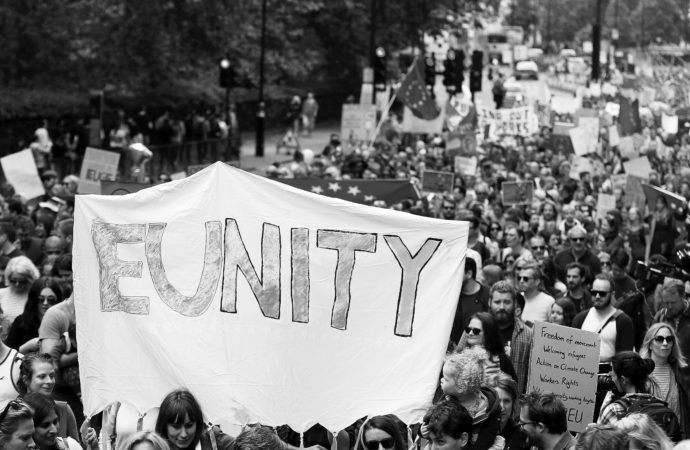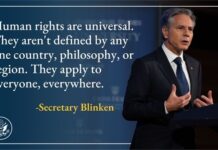Nabila Rafique
Exactly why did the UK decide to leave the EU? This is the first part of a three-part long form

Yes it did happen — UK voters made the phenomenal decision to leave the EU on June 23, 2016. A date now etched in history as a day of ground-shattering political fallout.
It is important to stress that Scotland and Northern Ireland voted to stay in, while England and Wales voted to leave. In England, London, Manchester, Liverpool, Leeds, and Newcastle were few of the major cities to vote for staying.
The faultlines are visible across the north and south of Great Britain and across the generational divide between the young and old. What led to the referendum? What could possibly have caused this divorce after 43 years of marriage? And where is this country heading?
My view is that of a commonwealth citizen living in London for the past five years. Whereas my view resonates with majority of Londoners, it is not the same as many across the country, and very strikingly, many of my own diaspora, the British-Bangladeshi community.
To understand this referendum, we need to go back to 2014, in the agonising throes of the refugee crisis.
The political instability and abject living conditions of conflict areas in the Middle East caused thousands to flee and line up in the shores of Europe and Turkey. Greece, Italy, and Turkey’s coastline were overwhelmed with impoverished faces and dead bodies.
These migrants had only one aim — to reach the shores of Europe. International humanitarian treaties required European countries to assume responsibility of these refugees, and grant them asylum.
Whereas countries like Austria and Hungary have not been very kind to these people, most refugees who made it ashore found safe haven in German, Italy, and Turkey.
The UK, being miles away from the EU coastline, was a long shot for them. The geographical advantage of the UK was that it was separated from mainland Europe by the English Channel with temperature much colder than the Mediterranean and Ionian Sea. Border controls with France in the ports of Calais and Dover were fierce.
Though UK took part in some humanitarian operations for these refugees, the heavy lifting was done by other European countries like Germany, Greece, and Italy.
UK’s comparative lack of action brought it at odds with EU member states. In countering that criticism, David Cameron hit back against the EU establishment, justifying UK’s position to protect its borders and control migration.
He proposed preferential treatment of the UK, lesser contribution to migrant funds, and restrictions on border controls. He faced criticism, severe criticism at home from pro-migrant campaigners of doing less and from anti-migrant campaigners for not doing more.
The refugee crises also lead many right-wing nationalists in many European countries to make demand to reject these refugees. Fears of being taken over by Muslim refugees, and a loss of sovereignty were propagated.
And it was not long before the UK’s right-wing nationalists joined in. Whereas organisations like the British Nationalist Party (BNP) bluntly expressed fascist, anti-immigration, xenophobic views, they were still a minority, and had no political power.
However, another such organisation had a bit more sophistication, UK Independence Party (UKIP). Its leader, Nigel Farage, was already a Member of European Parliament (MEP).
Most significantly, it had then just acquired two sitting members of parliament, defecting from the Conservative Party, thereby gaining political representation at home as well.
He advocated that UK needed to further control its borders against the migrants, or else it would be taken over. Since Europe was continuing to accept them, the solution was to be independent of the EU.
This was the backdrop of the general elections of UK 2015. Campaign was heating up, and Farage did not lose any opportunity to fan in these anti-migrant fears. Farage brought to question the EU membership and played heavy on immigration and freedom of movement.
The Liberal Democratic Party and the Labour Party did not make it any easy.
The answer, as it appeared to the PM, was to renegotiate membership benefits with EU. However, to assuage the calls of Farage and likes at home, he promised that, once re-elected, he would hold a referendum on EU membership.
This manifesto pledge won him the general election with a majority, amongst other reasons. However, very importantly, it increased the UK’s leverage in the EU talks. Because, EU always wanted UK to remain a member and softened to any demands the PM made. There was only one condition to EU agreeing to all the new membership benefits — he needed to convince the UK to vote in.
Once back in the number 10 Downing St in February 2016, he announced his promise: A referendum on EU membership would take place in the summer of 2016.
In many ways, the call for this referendum was a safe bet. The PM’s biggest ally through the journey was his bosom buddy: The Chancellor George Osborn.
The economy got better under his coalition regime, so it can only get better under his majority government. The UK was prospering, and the British pound got stronger.
EU member states all welcomed the UK to stay in. London teemed with diversity from across Europe. First and foremost, there was no hostility.
For 43 years, Brits only knew of a UK in EU, and had fostered families with EU citizens, business with EU countries, and developed laws and legislations on workers’ rights, the environment, national security, and education.
For 43 years they had been together in every strife and struggle, and the focus was the countries developed together.
The EU membership was stamped with a golden print on any British passport, and the UK proudly represented a golden star amongst the 28 stars in the blue EU flag. Commerce, travel, education flourished.
Ask any person, regardless of gender, race, colour, creed at the beginning of 2016 and they would say the UK would of course vote in.
But beneath this confident complacency, there was something else that was brewing, something alien, new, and provocative — the birth of a movement called Brexit.
Brexit is a short-hand for “Britain” and “exit.” The Oxford English Dictionary defines Brexit as “the possibility of Britain leaving the European Union.”
Though it is a redundant definition now that Britain had actually decided to exit, it is important to note that in essence it was just a possibility. λ
The second part of this long form will be published tomorrow.
Nabila Rafique is a Barrister.
Source: Dhaka Tribune









